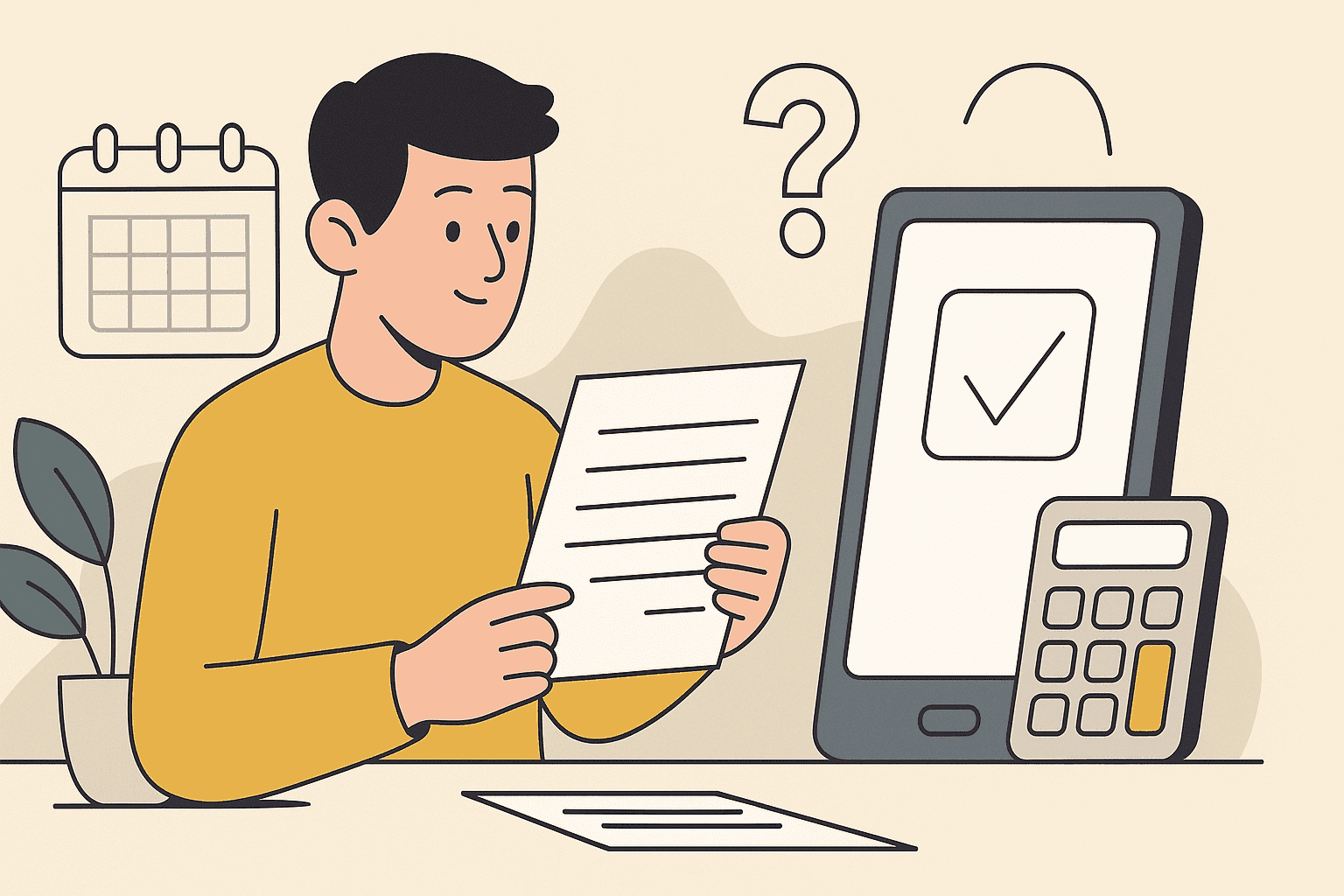Do You Need to File a Self Assessment? Simple UK Guide
Learn whether you need to file a Self Assessment tax return in the UK, including thresholds, deadlines, and how to avoid penalties.

Do You Need to File a Self Assessment? Here's How to Know
Filing taxes, on the whole, is an intricate procedure. Yet, if you're unsure of whether you need to submit a Self Assessment or not, complications arise further. Each year, thousands in the UK are confused about their tax situation. If you're a freelancer, your side hustle, or simply multiple streams of income, understanding when and why a Self Assessment comes into play is essential.
This guide is going to make it clear and straightforward as to who should send a Self Assessment tax return, what the criteria are, and the process itself, step-by-step. And by the end of it, you will be confident in your ability to decide your next step to stay compliant and avoid penalties issued by the HMRC.
Who Must File a Self Assessment?
HMRC use Self Assessment to obtain income tax which has not been automatically deducted from wages or pensions. Usually, you are obliged to file if, in the last tax year, you:
- Were self-employed and made a profit over £1,000 (before expenses);
- Had income worth more than £100,000;
- Were party to over £2,500 of untaxed income (e.g., rental income after expenses);
- Earned over £10,000 from savings or investments;
- Received Child Benefit and had income above £50,000;
- Were a company director (except for those who are unpaid and work for a company not for profit);
- And had foreign income or capital gains on which tax is payable in the UK.
For full guidance, check out HMRC’s official page.
Common Situations Explained
Freelancers and Self-employed
If you're self-employed, freelancing, or earning additional income alongside employment exceeding £1,000 annually, then you must file.
Example:
Sarah earns £5,000 designing websites alongside her regular job. She must file a Self Assessment due to freelance earnings.
Note: From 2029, the reporting threshold rises to £3,000, but tax is still due above £1,000 and filing remains a requirement.
Rental Income
If your rental income exceeds £2,500 after expenses, a Self Assessment must be filed. If the amount ranges between £1,000–£2,500, you should contact HMRC directly.
High Earners (Income Over £100,000)
Anyone earning more than £100,000 per annum must make a Self Assessment return, regardless of the type of income.
Savings and Investments
If you earn more than £10,000 pre-tax on your savings or investments, you must file.
How to File for a Self Assessment
Online filing is one of the easiest options:
- Register with HMRC: You'll need a Unique Taxpayer Reference (or UTR). Register online.
- Start gathering documents: Bank statements, payslips, receipts of expenses, and details of income.
- Complete your tax return online: You can access it via your Government Gateway account.
- Pay any tax due: If you need to pay HMRC, then the deadline is 31 January following the end of the tax year.
Payment Deadlines and Penalties
You get a heavy fine for filing late:
- Must register with HMRC by 5 October following the end of the tax year;
- Deadline for paper returns is 31 October following the end of the tax year;
- Deadline for online returns is 31 January following the end of the tax year.
Late filing penalties which would be imposed on late filers are as follows:
- An automatic £100 fine
- £10 per day charge for every day going past following three months (capped at £900)
- Heavier sanctions after six and 12 months
How to avoid penalties? Easy: file as soon as you can.
Payments on Account
Where your last tax bill was more than £1,000, then you will generally be paying half your estimated tax bill twice yearly, in payments on account, on 31 January and 31 July.
Special Circumstances
Claiming Tax Relief
There are cases where you voluntarily file to claim tax reliefs for:
- Expenses over £2,500
- Pension contribution relief
- Charitable donations via Gift Aid
Foreign Income or Capital Gains
Foreign-income, including renting or investments abroad, and capital gains, will generally require the filing of a Self Assessment.
Learn More at HMRC’s Foreign Income Guidance.
When You Don't Need to File
Those earning income wholly taxed via PAYE won't generally need to submit a Self Assessment unless circumstances change (such as having any additional untaxed income). Still have doubts? Use HMRC's Self Assessment checker.
Conclusion
Knowing whether you need a Self Assessment can save you enormous quantities of stress and untold amounts of fine. Let us revisit the key points:
- Diligently check your sources of income none
- Register as soon as possible
- File online by 31 January
Now that you can take care of your own tax with utmost confidence, stay compliant at all times, and keep from the surprises of HMRC.
Further Reading
-
Having a hard time working out what makes up your salary? Try the salary calculator.